By Jonathan Miller, on Mon Dec 16, 2013 at 1:30 PM ET If you are a fellow #upper, particularly a fan of the Steve Kornacki version of MSNBC’s “Up,” you undoubtedly have watched the best political game show on TV — “Up Against the Clock.” Typically hosted by Kornacki, the all-time leading scorer on the show had been contributing RP (and MSNBC “The Cycle” co-host) Krystal Ball.
Well, this week. Krystal guest hosted for Steve, and the game show featured new contestant, and fellow contributing RP, Jeff Smith. And who’d have thunk it, but Jeff emerged as the Greatest Of All Time Up Against the Clock contestant. Watch him stumble over a Judd Gregg question, and then make a miraculous recovery to claim the all-time championship:
By Jeff Smith, on Wed Nov 27, 2013 at 10:00 AM ET  Q. I work for a New York state assemblyman who has consistent turnover of attractive female staffers in the office. I recently heard that one reason behind the turnover is that he has slept with more than one of them. At least he’s not married, I guess. Even though it’s not exactly ideal, do you think it is problematic enough that I should leave, or does it sort of come with the territory in politics? Q. I work for a New York state assemblyman who has consistent turnover of attractive female staffers in the office. I recently heard that one reason behind the turnover is that he has slept with more than one of them. At least he’s not married, I guess. Even though it’s not exactly ideal, do you think it is problematic enough that I should leave, or does it sort of come with the territory in politics?
—No name or initials, obviously, New York City
Is this kind of thing more pervasive in politics than elsewhere? Perhaps; as Kissinger said, “Power is the ultimate aphrodisiac.” But that doesn’t make it right. If he’s slept with multiple members of his staff who have then quit or been fired, then yes, this is problematic enough for you to leave.
Do people in supervisory positions occasionally fall in love with subordinates? Sure, and yes, it can be complicated. But if it’s happened multiple times and caused “consistent” turnover (your words), then it’s not a fairy tale connection between principal and aide. It’s a pattern, and one with which you should avoid any association, because politicians (or bosses in any field) whose offices have patterns remotely like this don’t typically have bright futures (see: Filner, Bob).
Q. I work in a charter school in New York City and believe in the mutually beneficial relationship between a public school and its community, though in the charter world that’s hard: We are often treated as outsiders and insurgents. Relatedly, I am very concerned with what happened in the mayoral campaign around charter schools. Eva Moskowitz of Success Academy, with a few other schools, held a rally and march across the Brooklyn Bridge. It was obvious from the media coverage and the way it was discussed internally that the intent was to warn one of the mayoral candidates that opposition to charter schools would be dangerous. My concern, shared by many of my colleagues, is whether such a protest is unethical—or even worse. The organizers seem to have made a point to keep the rally from [using] obvious campaign rhetoric, but it seems that a rally about an issue that has been a source of debate in the campaign, held during a general election period, is inescapably political in the way that bars public schools from participating. The twist, perhaps, is that charter employees are not government employees, unlike district schools’ staff. Our schools’ budgets rely on public funds, yet the workforce is made up of private individuals. The call to action was done during work time; thus, while we were being paid with public dollars, flyers sent home to parents were printed on a copier paid for with tax dollars. I’m curious what you think about both the legality and the ethics of such an action.
—Concerned, New York CityThe narrow legal question is whether the protest organizers acted inappropriately. By using taxpayer resources to engage in political activity during work hours, the answer appears to be yes. (I am not a lawyer, and—for the uninitiated—I violated election law myself a decade ago.)
The broader question relates to this assertion: “[A] rally about an issue that has been a source of debate in the campaign, held during a general election period, is inescapably political in the way that bars public schools from participating.”
I completely disagree. Even if charter school employees were government employees, lots of public employees have interests that are “inescapably political” around which they organize during election season. Have you ever heard of AFGE (a union of federal government workers) or AFSCME (state and local government employees)? Their members don’t take vacations from political organizing because it’s election season. Quite to the contrary, election season finds them at their most active; elections focus the attention of voters, journalists and candidates, so timely activism is savvy. No one—unless their job specifically requires them to refrain from partisan political activity—should be precluded from participating in political activity during election time or any other time. And charter schools in particular—whose very existence hinges upon state law and local regulation—may find employee (and family) mobilization critical to their survival.
By Jeff Smith, on Fri Nov 22, 2013 at 3:00 PM ET Was John F. Kennedy the last honest politician?
Yes, that’s an intentionally provocative framing of the question, but given recent events, the idea warrants a deeper examination.
In stumping for the health care reform bill that bears his name, President Obama promised dozens of audiences (37 in all in the past four years) that “if you like your plan, you can keep it.” But he knew that over half of those who had purchased insurance on the individual market would lose their plans during implementation of his health care reform bill, and his administration assumed that, given the typical churn in the individual market, people would not notice the difference.
House Speaker John Boehner told two undocumented teenage girls that he’s “trying to find some way” to pass a comprehensive immigration bill. Yet, with a sufficient number of Republicans having publicly declared their support for such a bill, everyone in the Capitol knows that the votes are there to pass it if Boehner would simply agree to bring it to the floor despite it lacking the support of a majority of Republican legislators.
And Toronto Mayor Rob Ford recently claimed that he was prepared to admit smoking crack cocaine well before his ultimate admission; it’s just that reporters were asking him the wrong question.
Surely two of our nation’s most powerful leaders would be aghast at their inclusion in a category with the buffoonish Rob Ford. But there is a common thread: a lack of public candor by leaders who feared that transparency would damage them politically. Faced with similar challenges 50 years ago, our nation’s young president could not have responded more differently.
President Kennedy’s stunning candor following the 1961 Bay of Pigs fiasco seems quaint now that spinning, exaggerating, parsing words, and shading truths have become accepted parts of our nation’s political dialogue. But when leaders make mistakes, be they in the public or private sector, anything less than complete candor can empower rivals, the press, or, worst of all, law enforcement, to seize on a false statement, turning a speed bump into a full-blown scandal. As President Nixon taught us, the cover-up is almost always worse than the crime; it is a lesson I learned all too well.
 There are many memorable photographs of former President Bill Clinton, but perhaps the most memorable is the one of a 16 year-old Clinton representing Arkansas at Boys Nation, beaming while shaking President Kennedy’s hand. Kennedy, of course, was Clinton’s role model. But there was one area in which, at a critical moment, Clinton departed from Kennedy’s playbook: crisis management. There are many memorable photographs of former President Bill Clinton, but perhaps the most memorable is the one of a 16 year-old Clinton representing Arkansas at Boys Nation, beaming while shaking President Kennedy’s hand. Kennedy, of course, was Clinton’s role model. But there was one area in which, at a critical moment, Clinton departed from Kennedy’s playbook: crisis management.
The Bay of Pigs debacle was an unsuccessful 1961 invasion of Cuba by a CIA-trained paramilitary group who hoped to overthrow Castro’s government, which routed them in three days. The media clamored for Kennedy to address the events, which he did with clarity and candor. First, he acknowledged the United States’ role in the coup, and admitted the coup’s failure: “The news has grown worse instead of better.” Kennedy confessed surprise and disappointment in the outcome, showing a vulnerability rare among leaders as he described “useful lessons” from the “sobering episode.” He pledged to “re-examine and reorient our forces of all kinds.” Last, he fully he accepted responsibility.
There’s an old saying that victory has a hundred fathers and defeat is an orphan . . . further statements, detailed discussions, are not to conceal responsibility because I’m the responsible officer of the Government.
He did not blame the CIA for insufficient planning, or blame his national security team for offering poor information or guidance, or blame anyone for anything at all.
Read the rest of…
Jeff Smith: What John F. Kennedy’s Legacy Teaches Us About The Value Of Candor
By Jeff Smith, on Mon Nov 4, 2013 at 10:00 AM ET  Q: I just started working full-time on my first political campaign, and I have noticed that many of our decisions are guided by polling and not by a firm belief one way or the other. It has been disheartening to see how someone I believed would be a strong leader is so easily swayed by the polls and is apparently only concerned with getting elected. Am I working for the wrong candidate, or is this what I signed up for? Q: I just started working full-time on my first political campaign, and I have noticed that many of our decisions are guided by polling and not by a firm belief one way or the other. It has been disheartening to see how someone I believed would be a strong leader is so easily swayed by the polls and is apparently only concerned with getting elected. Am I working for the wrong candidate, or is this what I signed up for?
—L.D., St. Louis
The way I interpret your question, I don’t think that’s what you signed up for. But let me explain.
Nearly every candidate worth her salt—at the state legislative level and higher in most states, at this point— uses polls. But good leaders don’t use polls to figure out their positions on issues. They use polls to figure out which of their issue positions they should highlight and which they should downplay. They use polls to figure out how to talk about the issue positions they want to highlight. And they use polls to figure out which attacks merit a response. That’s being poll-savvy, which is smart—not poll-driven, which can be pathetic.
So think about whether your candidate is poll-savvy or poll-driven. And even if he is the latter, ask yourself: Is it awful for a candidate to poll voters before taking a position on an issue or issues? Is that not in some respects what representative democracy is about? Taken to an extreme, obviously, it’s troubling—no one wants to vote for a weather vane. But if a candidate doesn’t have an established position or strong feelings on an issue, I don’t see a problem with taking the pulse of the electorate before deciding.
So is this what you signed up for? No. But I think that may be more about you than it is about him.
Q: Are you following the race for New York City Council Speaker? Seems like any one of a number of people could win. When it gets down to brass tacks, how do legislators make up their minds on leadership votes? Do they vote based on the candidates’ ideology, race, gender, geographic roots or intangible leadership qualities?
—A.M., New York CityNone of the above. In my experience, legislators’ votes in leadership races are almost always about one thing: themselves. Now, I know this sounds counterintuitive, but hear me out.
Suppose you are the Economic Development Committee vice chair and you want to chair the committee. The current chair, whom you despise and often quietly disagree with, is running for Speaker against another member whom you like and generally agree with, and you expect the vote will be close. You will probably vote for the person you despise, because—unless power in that particular legislative body is completely centralized— the chance to chair Eco Devo is probably more alluring to you than the chance to have someone as Speaker whom you like. If power in the chamber is absolutely centralized, and if you totally trust the candidate you like to depose the current chair if she wins (a rare move in most chambers), and if you trust her to appoint you as the new chair, and if you then trust her to give you some power as chair, then you may want to vote for the person you like. As you can see, there are a lot of ifs there.
To take a somewhat simpler example, if you are a freshman Council member who first and foremost aspires to be Speaker, and one of your closest allies, also a first-term member, is running for Speaker against a second-term member whom you dislike, you’ll probably vote against your ally, because if she is elected Speaker and consolidates power, you will likely be termed out before there is another open seat race for Speaker, since you wouldn’t challenge an ally who is the sitting Speaker.
These two examples serve to make a broader point: Leadership votes are usually as much if not more about the ambitions of rank-and-file members than they are about the qualities of the aspirants.
Read the rest of…
Jeff Smith: Do As I Say, A Political Advice Column
By Jeff Smith, on Tue Oct 8, 2013 at 1:30 PM ET
Ben White, Matt Zeitlin and Tim Carney are our guests this week.
With guest host: New School Professor and former Missouri Senator Jeff Smith
Show produced by Katherine Caperton.
Original Air Date: October 5, 2013 on SiriusXM “POTUS” Channel 124.
Listen to the show by clicking here.
Show also available for download on Apple iTunes by clicking here
 Hi – I’m Jeff Smith, public policy professor at The New School in New York City, sitting in for Josh this week – a week full of political intrigue. Between Senator Ted Cruz’s theatrics, the government shutdown, the Obamacare rollout, and the looming debt ceiling, there’s a lot to talk about – and the standoff also raises intriguing questions about party alignment. This week we hosted three reporters who’ve been in the thick of it, Politico’s Ben White, Buzzfeed’s Matt Zeitlin, and the Washington Examiner’s Tim Carney. Hi – I’m Jeff Smith, public policy professor at The New School in New York City, sitting in for Josh this week – a week full of political intrigue. Between Senator Ted Cruz’s theatrics, the government shutdown, the Obamacare rollout, and the looming debt ceiling, there’s a lot to talk about – and the standoff also raises intriguing questions about party alignment. This week we hosted three reporters who’ve been in the thick of it, Politico’s Ben White, Buzzfeed’s Matt Zeitlin, and the Washington Examiner’s Tim Carney.
* * *
Few political science concepts have been as heatedly debated in academia (and in journalism, to a lesser degree) as the term “realignment.” Some scholars argue that party realignments happen in a single election; others say they take decades. Some define realignment as a durable shift in the voting behavior of certain groups, while others stress elite-level policy shifts. During realignments, a “rare, massive, and enduring shift of the electoral equilibrium” occurs, and while some suggest that realignment occurs through mobilization of new groupsor generational replacement, others stress actual partisan conversion in the electorate. Whatever the cause, the shift profoundly alters party coalitions and the relative strength of various factions within them.
Alignments typically occur when the dominant issue cleavage in a political system is disturbed by a new set of issues leading to widespread public demand for action. Given a two-dimensional issue space – imagine economic issues on one axis and cultural issues on the other – the minority party will naturally attempt to shift the focus of political debate to issues which will help it divide the other party’s coalition and attract more voters – which is what Republicans are attempting to do by focusing on Obamacare, which unites Republicans but splits Democrats from Democratic-leaning independents. Repeated iterations of such attempts by political parties may gradually produce a rotational movement of party realignment over time in a two-dimensional space. Such rotation helps explain why the 2000 electoral map was almost the mirror image of the 1896 map: it wasn’t that electorates in Nebraska and Manhattan traded their world-views and economic interests over decades; it was that in many respects, the two parties traded places. A realignment, then, comprises two elements: 1) a newly dominant issue cleavage and 2) a transformation not of political preferences generally but of the way that people holding those preferences align by party.
And so, although this week’s show mostly focuses on the shutdown and debt limit default, we also raise broader questions about how these battles may affect party alignment. For instance, does Wall Street’s alignment with the president against the Tea Party portend a broader switch of allegiances to a pro-business Democratic party under the banner of Wall Street-backed Hillary Clinton versus a populist Ted Cruz or Fed-auditing Rand Paul? Or might the emergence of a Clinton candidacy buoyed by Wall Street bundlers inspire a Warren-esque anti-financier insurgency that attracts elements sympathetic to both Occupy and anti-bailout libertarians – particularly if Wall Street-backed Chris Christie is the Republican standard-bearer?
This week, Polioptics fans get to hear three whip-smart young journalists –Politico’s Ben White, Buzzfeed’s Matt Zeitlin, and the Washington Examiner’s Tim Carney – delve into all of this and more. Matt and Ben explain the shutdown’s economic impact and the financial implications of default – globally, and locally – with an eye towards possible shifts in party alignment that might result from Washington’s current battles. And Tim takes a deep dive into the future of the Republican Party – and the conservative movement more broadly. Three unique perspectives not just on today’s news, but on tomorrow’s…and perhaps next year’s as well.
By RP Staff, on Mon Oct 7, 2013 at 10:00 AM ET 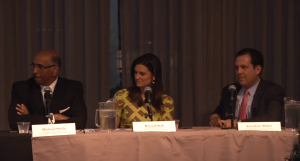 Crisis management and scandal recovery have captured the moment, from big-league sports to New York City’s current political silly season. PR firms are rebranding themselves as crisis advisers. Ex-White House aides are peddling their bona fides. While the public sees scandal through a tabloid lens, at its heart are flawed human beings making mistakes, acting emotionally, and trying to preserve their reputations and careers. “Recovering politicians” who suffered highly publicized scandals share their stories, offer guidance, and comment on the latest attempts to launch second acts. Crisis management and scandal recovery have captured the moment, from big-league sports to New York City’s current political silly season. PR firms are rebranding themselves as crisis advisers. Ex-White House aides are peddling their bona fides. While the public sees scandal through a tabloid lens, at its heart are flawed human beings making mistakes, acting emotionally, and trying to preserve their reputations and careers. “Recovering politicians” who suffered highly publicized scandals share their stories, offer guidance, and comment on the latest attempts to launch second acts.
A conversation with:
Krystal Ball, co-host, MSNBC’s “The Cycle;” former Virginia congressional candidate
Jonathan Miller, Daily Beast columnist; No Labels co-founder; former Kentucky state treasurer
Michael Steele, co-chairman, Purple Nation Strategies; former Republican National Committee chairman
Moderated by:
Jeff Smith, assistant professor of politics and advocacy, The New School; former Missouri state senator
By Jeff Smith, on Wed Oct 2, 2013 at 10:00 AM ET  Q: Here’s my problem: I’m secretly dating someone who works on an opposing campaign. I know what you’re thinking: This is like something out of a movie, or like James Carville and Mary Matalin. But we’re just two people who really like each other and don’t want to let the campaign get in the way of a blossoming relationship. Is this too scandalous? Should we take a break, or do you think we can survive it? Q: Here’s my problem: I’m secretly dating someone who works on an opposing campaign. I know what you’re thinking: This is like something out of a movie, or like James Carville and Mary Matalin. But we’re just two people who really like each other and don’t want to let the campaign get in the way of a blossoming relationship. Is this too scandalous? Should we take a break, or do you think we can survive it?
—Juliet (obviously not my real name!)
Yes, “Juliet,” something about your question suggested that might not be your real name, though I appreciate the clarification. As for you and your star-crossed lover, your situation does sound a bit like a movie—the dreadful 1992 Michael Keaton vehicle Speechless.
Forgive my tone, Juliet, but, really, chill. By today’s standards, what you’re doing isn’t very scandalous, unless of course you’re leaking poll numbers and television ad scripts. In fact, someone else on your campaign is probably hooking up with someone on an opposing campaign as well. Politics is a small and horny world. So go ahead and date—quietly for now if you prefer, but openly if you like. Assuming that your boyfriend on the other campaign isn’t a 15 year-old intern, I’d suggest that this cycle’s candidates have rendered your love life rather quaint.
Q: Did you see the Washington Post article about the longtime Hillary Clinton aide getting mixed up in shenanigans during the 2008 campaign where she appears to have coordinated a so-called independent expenditure on behalf of the campaign? It reminds me of what you got in trouble for. What’s the difference, and what do you think will happen to her?
—M.E, Washington, D.C.
Well, one big difference is about $600,000 (the expenditure in question was nearly $609,000, whereas the expenditure during my 2004 race was approximately $10,000). A second difference is that—at least according to the Post article—the Clinton aide in question, unfortunately, allegedly put some things in writing, unlike my campaign aides who met with an outside consultant. But the biggest apparent difference is that none of her closest friends wore a wire and got her to talk, so it may be possible for her to explain away alleged emails that strongly suggest illegal coordination but leave some ambiguity. “I was merely providing Sen. Clinton’s campaign schedule for an old associate who wanted to invite friends to some events,” she might say; or “I provided information about our field operations to an associate who said he knew some willing campaign helpers, but I had no idea he was planning any sort of independent expenditure.” I should stress that I’m not accusing anyone of a crime here but speculating about possible defenses. Given the woman’s status as a longtime Clinton aide and the high stakes as Hillary contemplates 2016, I’d expect she’s receiving top-flight legal advice. The outcome is difficult to predict without seeing the actual emails, but it will sure be interesting to watch it unfold.
Read the rest of…
Jeff Smith: Do As I Say — A Political Advice Column
By RP Staff, on Tue Sep 24, 2013 at 2:00 PM ET Second Acts: Recovering from Scandal
Crisis management and scandal recovery have captured the moment, from big-league sports to New York City’s recent political silly season. PR firms are rebranding themselves as crisis advisers. Ex-White House aides are peddling their bona fides. While the public sees scandal through a tabloid lens, at its heart are flawed human beings making mistakes, acting emotionally, and trying to preserve their reputations and careers. “Recovering politicians” who suffered highly publicized scandals share their stories, offer guidance, and comment on the latest attempts to launch second acts.
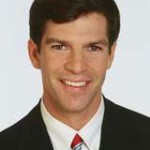  A conversation with: A conversation with:
Krystal Ball, co-host, MSNBC’s “The Cycle;” former Virginia congressional candidate
Jonathan Miller, Daily Beast columnist; No Labels co-founder; former Kentucky state treasurer
Michael Steele, co-chairman, Purple Nation Strategies; former Republican National Committee chairman
Moderated by:
Jeff Smith, assistant professor of politics and advocacy, The New School; former Missouri state senator
TUESDAY, SEPTEMBER 24, 2013
6:30 PM – 8:30 PM
Theresa Lang Community & Student Center, Arnhold Hall
55 West 13th Street (between Fifth and Sixth avenues), 2nd Floor
Admission is free but you must RSVP.
By Jeff Smith, on Tue Sep 24, 2013 at 1:30 PM ET
By Jeff Smith, on Sun Sep 15, 2013 at 9:28 AM ET Contributing recovering politician Jeff Smith, who spent a year in federal prison for lying to federal authorities about a minor campaign finance violation, offers advice to his fellow pol/prisoner/hoopster Richie Farmer, set to spend some time in the can for public corruption charges. Here are excerpts from Smith’s piece in the (Louisville) Courier Journal:
Use your basketball skills to help others. Running the point and making your teammates better may be an effective way to build alliances.
• Be careful on the court. Some people who have it out for you may exploit the opportunity to try to hurt you on the athletic field and not get in trouble for it….
Don’t break prison rules.
• This may seem contradictory. The last rule suggested that you should tolerate prison rule-breaking — and you should. But try not to violate rules yourself.
• Don’t gamble. If you lose, you’ll be in debt and you do not want to be compromised like that. If you win, someone will be angry and may figure out a way to get his money back — a way that might leave you unrecognizable.
• Don’t “hold” anything someone asks you to hold. Even if it looks innocuous, it’s probably got contraband inside of it…
Don’t look for trouble.
• Don’t change the TV channel. There is a stringent seniority-based regime when it comes to TV watching, and your celebrity does not entitle you to alter it in any way.
• Don’t stare. There is generally no reason to make eye contact unless someone says your name.
• Don’t eat the Snickers. During orientation, you’ll watch a mandatory sexual assault prevention video featuring a guy warning you not to eat the Snickers bar that may be waiting for you on your bed in your cell. (The actor ate the one left under his pillow, unwittingly signaling the predator who left it for him that he was ready and willing.) All the guys watching the video will laugh. But take the video’s message to heart: Don’t accept sweets from anyone.
Click here for Smith’s full column in the Courier-Journal.
|
The Award-Winning Documentary about Jeff’s Early Career (2006):
The Recent New Republic Article About Jeff (2011):
|
|
|





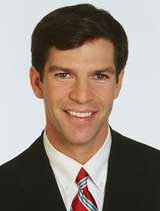
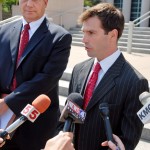







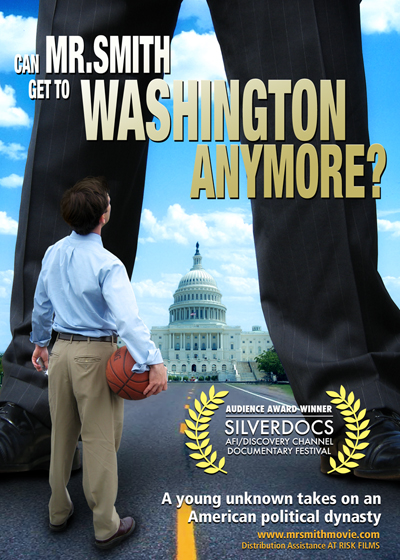









Follow Jeff Smith: